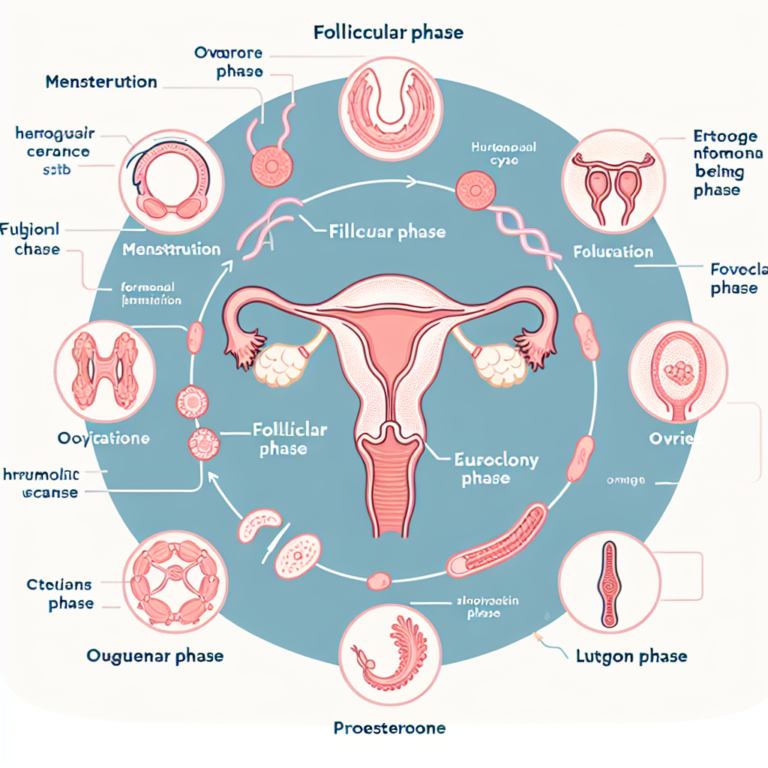Embarking on the journey to pregnancy is a significant and transformative experience, filled with anticipation and hope. Whether you’re just beginning to consider starting a family or have been trying to conceive for some time, understanding the intricacies of this journey is essential. In this comprehensive guide, we delve into the essential steps to achieving a healthy pregnancy, offering insights and expert advice to maximize your chances of success. From understanding the biological processes involved and preparing your body for conception to exploring lifestyle adjustments and fertility treatments, we aim to equip you with the knowledge and strategies needed for a successful path to pregnancy. Join us as we explore this profound life event, providing you with the tools and confidence to navigate the exciting road ahead.
1. “Understanding the Journey: Essential Steps to Achieving a Healthy Pregnancy”
Embarking on the journey to getting pregnant is an exciting and significant step in life. Understanding the essential steps to achieving a healthy pregnancy can help prospective parents prepare both physically and emotionally for this transformative experience. One of the first considerations is ensuring optimal health prior to conception. This often involves a visit to a healthcare provider for a preconception checkup. During this appointment, the doctor will review your medical history, discuss any potential risks, and offer guidance on prenatal vitamins, particularly folic acid, which is crucial for fetal development.
Maintaining a balanced diet is another critical component in the journey to a healthy pregnancy. A nutrient-rich diet supports reproductive health and prepares your body for the demands of pregnancy. Focus on consuming whole grains, lean proteins, healthy fats, and plenty of fruits and vegetables. Staying hydrated and limiting caffeine and alcohol intake are also important steps to consider.
Understanding your menstrual cycle is another key element in getting pregnant. By tracking ovulation, you can identify your most fertile days, optimizing your chances of conception. There are various methods to track ovulation, including ovulation predictor kits, basal body temperature charting, and monitoring cervical mucus changes.
Lifestyle choices also play a significant role in fertility and pregnancy health. Regular physical activity can improve overall health and reduce stress, which is beneficial when trying to conceive. However, it is important to balance exercise with rest and relaxation, as excessive physical strain can negatively impact fertility. Avoiding harmful substances such as tobacco and illicit drugs is crucial, as these can affect fertility and potentially harm the developing fetus.
Finally, mental and emotional preparation is equally important on the path to getting pregnant. The journey to conception can be an emotional rollercoaster, filled with anticipation and sometimes uncertainty. Practicing stress-reduction techniques, seeking support from loved ones, and maintaining open communication with your partner can help manage the emotional aspects of this journey.
By understanding and implementing these essential steps, prospective parents can pave the way for a healthy and fulfilling pregnancy.
 Also Read:
Timing and Transition: How Quickly Can You Conceive?
Also Read:
Timing and Transition: How Quickly Can You Conceive?
2. “Maximizing Your Chances: Expert Tips for a Successful Path to Pregnancy”
When embarking on the journey to pregnancy, many couples seek ways to enhance their chances of conception. While every individual’s path to pregnancy is unique, there are several expert-backed strategies that can help optimize fertility and increase the likelihood of a successful pregnancy.
First and foremost, it’s crucial to understand your menstrual cycle. Tracking ovulation can significantly boost your chances of getting pregnant, as it helps identify the most fertile window. Using ovulation predictor kits or fertility tracking apps can simplify this process, allowing you to pinpoint the best time to try for a baby.
Maintaining a healthy lifestyle is another vital factor. A balanced diet rich in essential nutrients, regular exercise, and adequate sleep can enhance fertility in both partners. Foods high in antioxidants, such as fruits and vegetables, alongside sufficient protein and healthy fats, can support reproductive health. Additionally, staying physically active helps maintain a healthy weight, which is crucial since both underweight and overweight conditions can impact fertility.
Stress management is often overlooked but plays a significant role in the path to pregnancy. Chronic stress can affect hormone levels and ovulation, potentially delaying conception. Incorporating relaxation techniques such as meditation, yoga, or even simple breathing exercises can help manage stress levels effectively.
Furthermore, avoiding harmful substances is imperative. Smoking, excessive alcohol consumption, and drug use can negatively impact fertility and should be minimized or eliminated when trying to conceive. It’s also wise to consult with a healthcare provider about any medications you or your partner are taking, as some may affect fertility.
For those who have been trying unsuccessfully for a year (or six months if over 35), seeking advice from a fertility specialist can provide personalized guidance and explore potential underlying issues. Treatments and interventions are available to assist in achieving pregnancy, and early consultation can be beneficial.
Remember, while these expert tips can enhance your chances of getting pregnant, patience and perseverance are key. Each couple’s journey is different, and it’s important to stay positive and supportive of each other throughout this exciting, yet sometimes challenging, process.
